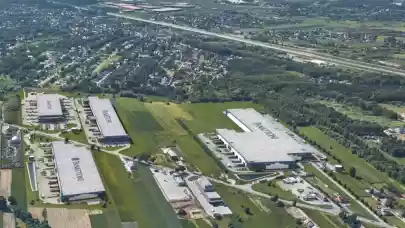
The Czech Republic is on the cusp of a major transformation of its transport infrastructure having far-reaching consequences for the industrial and logistics real estate market across the Central European region, reports Colliers in its recent study.
The second half of this decade will bring a major wave of new motorway construction that will fundamentally change the country's transport corridors and allow them to be connected more efficiently to European transport road corridors (TEN-T). This expansion of the motorway network is not just a matter of national mobility, according to Colliers, but a strategic step towards strengthening the Czech Republic's position as a key transport and logistics hub in the heart of Europe. New hubs of industrial activity are expected to emerge, while the importance of existing hubs in Europe, and Central Europe in particular, is expected to grow.
The first major expansion of the motorway network will be seen as early as the end of 2024 when more than 100 km of new motorway sections are planned to open. The trend will continue in the following years, with plans to open an average of around 60 km of new sections per year for the next six years, depending on the likelihood of delays due to permitting processes and possible construction complications. The ambitious target of completing more than 450 km of new motorway sections by 2030 would represent an unprecedented expansion of transport infrastructure in the modern history of the Czech Republic.
According to Colliers, there is currently more than 12 million sqm of industrial space under construction in the Czech Republic, with a vacancy rate of around 3%. Demand for quality industrial space remains strong; particularly in major industrial hubs such as Prague, Brno, Pilsen and Ostrava.
"With the gradual completion of new motorway sections, some secondary and developing hubs, such as Olomouc–Přerov or Jihlava, are expected to gain in attractiveness and may see an increase in demand for space and thus rents," predicts Josefína Kurfürstová, Senior Analyst at Colliers.
This could also affect rental prices. In primary hubs such as Prague, this ranges from €7-7.50/m², while in secondary locations, €5.40-5.80/m² is common. This is where the growth potential opens up.
The development of the motorway network will also open up new prospects for cities such as České Budějovice or the Vysoké Mýto and Litomyšl areas, which could become important logistics and industrial centres thanks to better connections to the national and international transport network.



